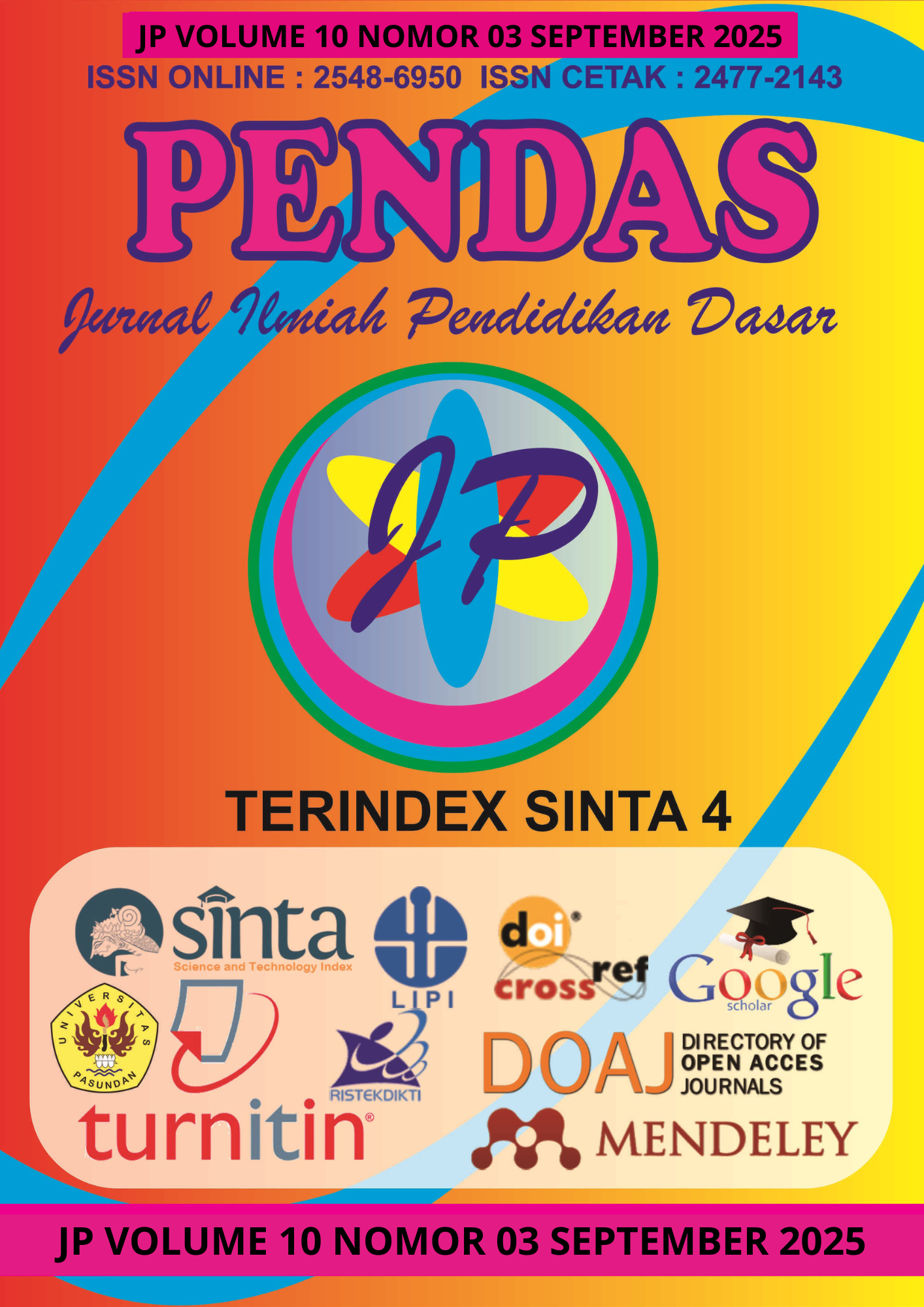PENGARUH GAME EDUKASI INTERAKTIF BAAMBOOZLE TERHADAP KEMAMPUAN BERPIKIR KRITIS SISWA KELAS IV SD
DOI:
https://doi.org/10.23969/jp.v10i03.28763Keywords:
baamboozle, critical thinking, educational gameAbstract
This study aims to determine the effect of the interactive educational game Baamboozle on the critical thinking skills of fourth grade elementary school students. using a quantitative approach with an experimental method (quasi-experimental) type of posttest-only control group design. The subjects of the study consisted of two groups: the experimental group (class IV A) and the control group (class IV C) each consisting of 30 students with a purposive sampling technique. The experimental group was given treatment using the Baamboozle game, while the control group used conventional learning. Validity and reliability tests were carried out using SPSS 25, with Cronbach's Alpha results of 0.801 indicating high reliability. Data analysis included normality, homogeneity, and hypothesis testing using independent sample t-test. The results showed a significant difference in the posttest scores between the experimental group and the control group, with a significance value of > 0.05 for the normality and homogeneity tests, the data was declared normally distributed and homogeneous with a significance level of > 0.05 and a t-count value of > t-table. These findings indicate that the interactive educational game Baamboozle has a positive and significant effect on the critical thinking skills of fourth grade students in the subject of Natural and Social Sciences (IPAS). It can be concluded that digital games such as Baamboozle can increase student engagement and higher-order thinking skills in elementary education
Downloads
References
Arif, M., Rohman, F., & Fauziah, N. (2019). Berpikir Kritis dan Kreatif dalam Pembelajaran. Malang: UIN Maliki Press.
Helmawati. (2019). Pembelajaran Abad 21: Teori dan Praktik di Sekolah. Bandung: PT Remaja Rosdakarya.
Sugiyono. (2022). Metode Penelitian Kuantitatif, Kualitatif dan R&D. Bandung: Alfabeta.
Ayurachmawati, P., Asmara, R., & Nopriyanti, T. D. (2024). Pengaruh Pendekatan STEM (Science, Technology, Engineering, Mathematics) Terhadap Kemampuan Berpikir Kritis Kelas V SD Negeri 01 Rasuan. Indonesian Research Journal on Education, 4(2), 380-384.
Iskandar, A., Aulia, F., & Suryani, L. (2022). Penggunaan Aplikasi Baamboozle untuk Meningkatkan Antusias Belajar Siswa di Sekolah Dasar. Jurnal Basicedu, 6(3), 4120–4127.
Melisa. (2024). Kurikulum Merdeka dan Implikasinya dalam Pembelajaran di Sekolah Dasar. Jurnal Pendidikan Dasar Inovatif, 5(1), 33–41.
Najuah, R., Andriyani, R., & Putri, D. M. (2022). Pemanfaatan Game Edukatif Berbasis Digital dalam Pembelajaran. Jurnal Teknologi Pendidikan Dasar, 3(2), 1–10.
Oktariani, I., Marhamah, M., & Kuswidyanarko, A. (2024). Pengembangan Multimedia Interaktif Pada Mata Pelajaran Ipas Materi Harmoni Dalam Ekosistem Kelas V Sekolah Dasar. Pendas: Jurnal Ilmiah Pendidikan Dasar, 9(3), 57-66.
Saud, U. S., Sulaeman, R., & Zulfikar, R. (2022). Pengaruh Game Edukasi Terhadap Minat dan Motivasi Belajar Siswa. Jurnal Pendidikan Teknologi dan Kejuruan, 28(2), 115–123.
Downloads
Published
Issue
Section
License
Copyright (c) 2025 Pendas : Jurnal Ilmiah Pendidikan Dasar

This work is licensed under a Creative Commons Attribution 4.0 International License.














































